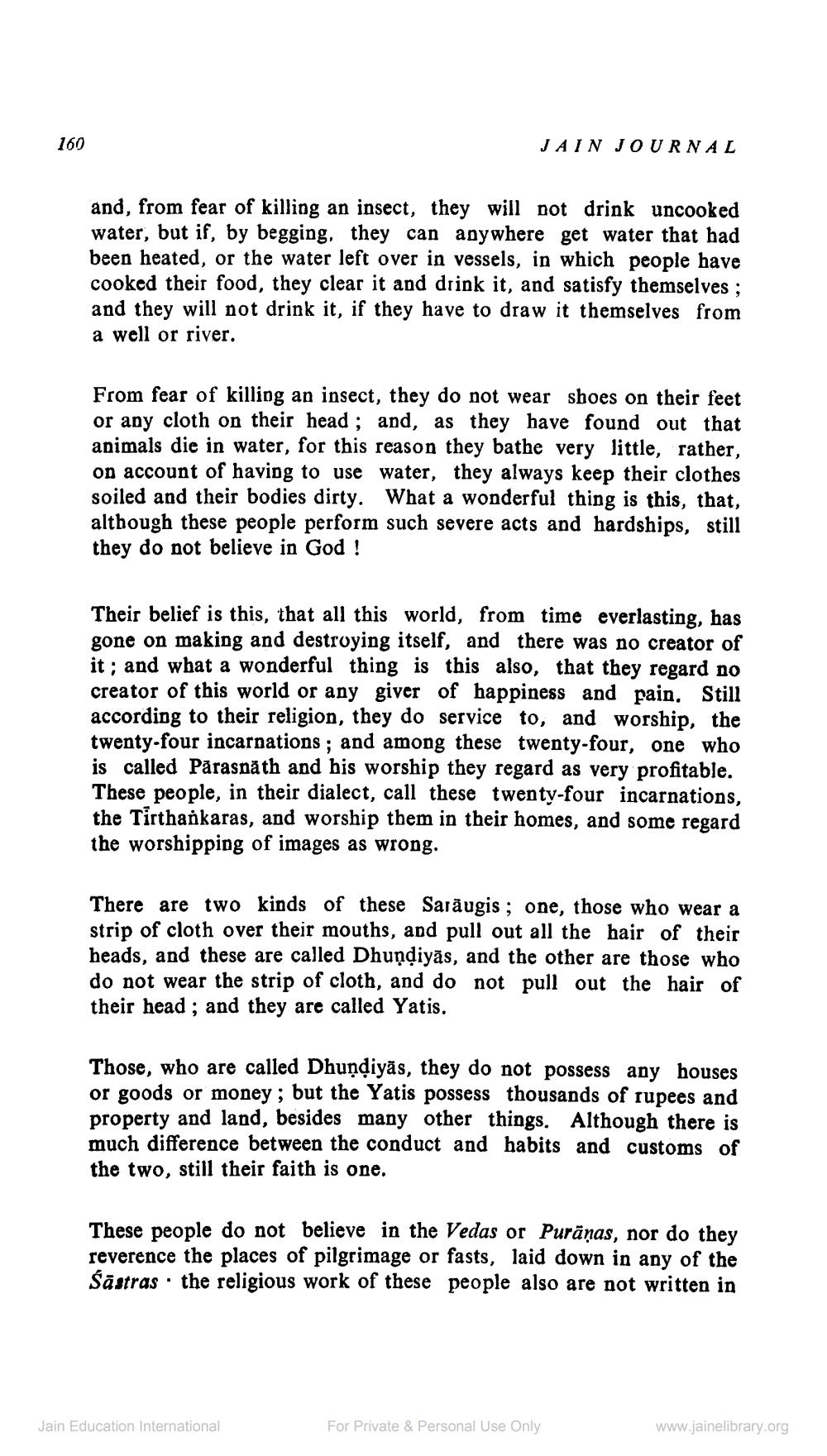________________
160
JAIN JOURNAL
and, from fear of killing an insect, they will not drink uncooked water, but if, by begging, they can anywhere get water that had been heated, or the water left over in vessels, in which people have cooked their food, they clear it and drink it, and satisfy themsel and they will not drink it, if they have to draw it themselves from a well or river.
From fear of killing an insect, they do not wear shoes on their feet or any cloth on their head; and, as they have found out that animals die in water, for this reason they bathe very little, rather, on account of having to use water, they always keep their clothes soiled and their bodies dirty. What a wonderful thing is this, that, although these people perform such severe acts and hardships, still they do not believe in God !
Their belief is this, that all this world, from time everlasting, has gone on making and destroying itself, and there was no creator of it ; and what a wonderful thing is this also, that they regard no creator of this world or any giver of happiness and pain. Still according to their religion, they do service to, and worship, the twenty-four incarnations; and among these twenty-four, one who is called Parasnāth and his worship they regard as very profitable. These people, in their dialect, call these twenty-four incarnations, the Tirthankaras, and worship them in their homes, and some regard the worshipping of images as wrong.
There are two kinds of these Sarāugis ; one, those who wear a strip of cloth over their mouths, and pull out all the hair of their heads, and these are called Dhundiyās, and the other are those who do not wear the strip of cloth, and do not pull out the hair of their head; and they are called Yatis.
Those, who are called Dhundiyâs, they do not possess any houses or goods or money; but the Yatis possess thousands of rupees and property and land, besides many other things. Although there is much difference between the conduct and habits and customs of the two, still their faith is one.
These people do not believe in the Vedas or Purāņas, nor do they reverence the places of pilgrimage or fasts, laid down in any of the Šāstras . the religious work of these people also are not written in
Jain Education International
For Private & Personal Use Only
www.jainelibrary.org




